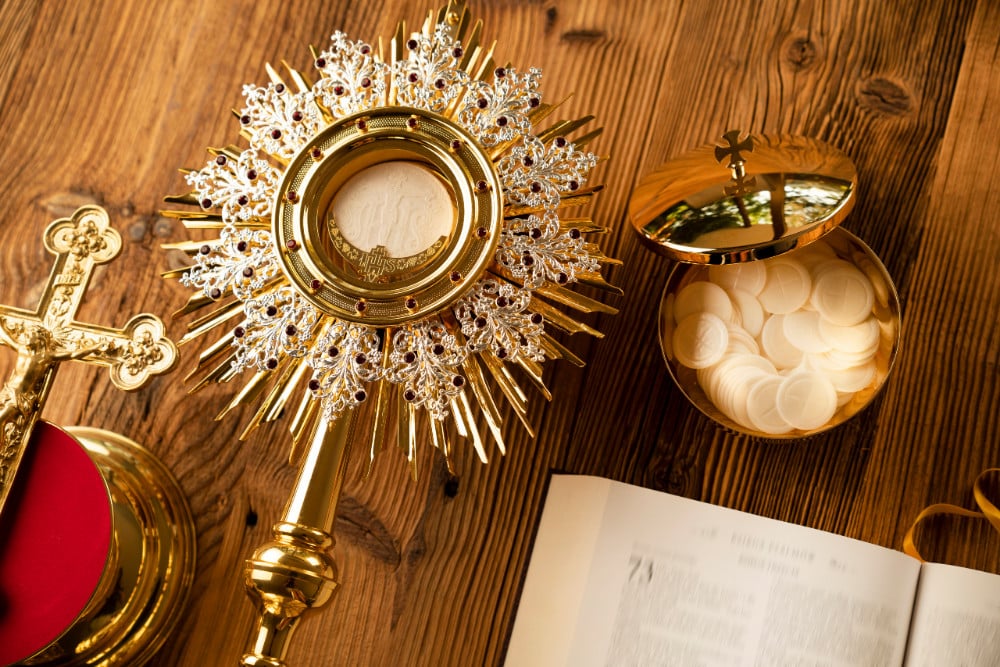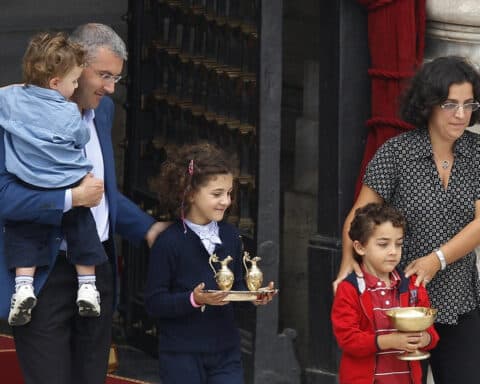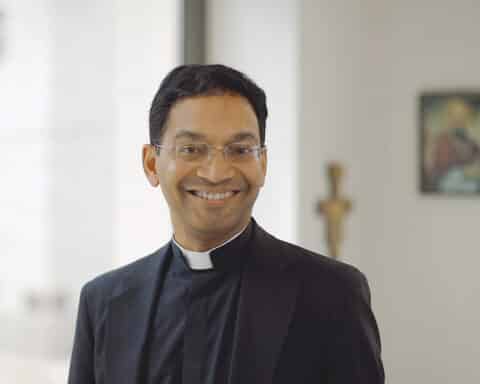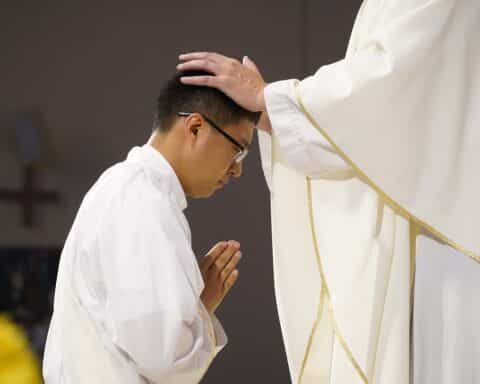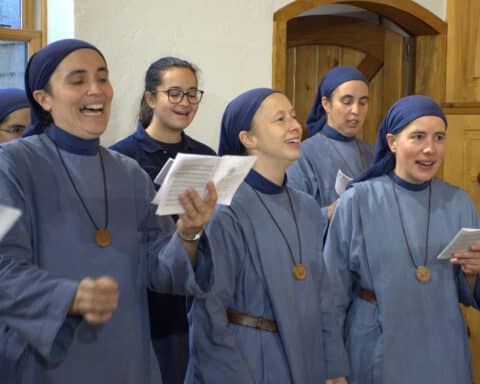The holy Eucharist has been integral to my priestly vocation. My mother was a devoted daily communicant, so I was predisposed to the graces of this sacrament throughout primary and secondary school. When I went to Gonzaga University, a friend asked what I was going to do for Lent. I responded, “I am not really sure, but I think I will give up meat on several days — or something.” He said, “Not me; I am going to go to daily Mass.” I thought to myself, if he can go to daily Mass, perhaps I should consider it. After all, it’s just for Lent.
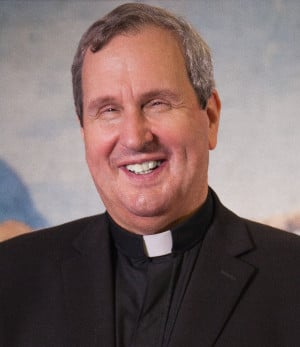
I carried out my resolve, and after Lent, I was hooked — unexpectedly drawn to the homilies, the community and, above all, the holy Eucharist. When Lent first began, I was counting down the days when I would get my lunch hour back, but toward the end, I felt regret about leaving the sacrament behind after the season ended, so I just kept going.
Slowly but surely, a transformation began to occur in my life. Fellow students started telling me that I seemed more peaceful, considerate and faith-filled than before — “not like your old utilitarian, uncaring self.” I protested that I really had not changed that much, but after several people told me, even I had to admit something was happening to me with which I was cooperating — but not controlling. If I were to put it in a phrase, it would be John Henry Newman’s cor ad cor loquitur — the heart of Christ speaking to and transforming my heart.
The connection with Christ continued to increase my peace of mind, trust in God and transformation of heart throughout the next two years of university studies. I began to sense a conflict between my original plan to go to law school (then to join my father’s law firm and businesses) and a new, increasingly strong desire to work for the Kingdom of God. My participation in daily Mass (particularly receiving the holy Eucharist) as well as my philosophical studies led inexorably toward the conviction that my religion was the most important dimension of my life. What was truly shocking was that my former desire for money, influence and power no longer seemed to be important. I became very interested in everything theological — from Scripture to Church history to doctrine — and I could not help but think that being a priest would be a much better use of my time on earth than my prior plan.
My participation in daily Mass (particularly receiving the holy Eucharist) as well as my philosophical studies led inexorably toward the conviction that my religion was the most important dimension of my life.
I still wanted to be married, have a family and join my father’s law firm and businesses because I did not want to disappoint my father, and I had built up an expectation that I could not be happy without these things. I called my mother and explained my quandary, to which she responded, “I just read this article in Time magazine, and it says that you can be a permanent deacon and have it all — marriage, family, career and service to Christ in the Church. All you have to do is get married before applying to the diaconal program.” I thought to myself, “That’s it — the solution!” Finally, I could wrest the priesthood from my mind and go on with my pre-law studies in peace.
Read more Fall Vocations articles here.
However, the Lord did not leave me in peace. He kept deepening his presence to me through the holy Eucharist, and the same set of thoughts began to recur. I felt his presence, peace, healing power and consolation even hours after I had left Mass, which provoked the question, “Why wouldn’t I want to give my life to being his representative as his alter Christus?” The ensuing mental debate went unresolved for several months, and then one day, as I was leaving St. Aloysius Church, I caught a glimpse of a booklet on the priesthood sitting on a rack at the entrance. Half of me said, “Don’t look at that book!” and the other half said, “look at that book!”
To this day, I still attribute my decision to look at the book to an irresistible desire inspired by the Holy Spirit. I stood there in the back of the church and read the booklet closely, observing all the pictures. I left thinking not only that I wanted to be a priest and that this would be the best use of my life, but most importantly, that the Lord was calling me to the priesthood. I had one other confirmatory experience before I definitively made up my mind, and when that happened, I decided to contact the vocation director for the Jesuits and went full speed ahead. Ever since I made that decision, I have been more joyful as well as more peaceful, trusting, faith-filled and loving.
I am absolutely certain that this was initiated and inspired by daily Mass — particularly the holy Eucharist. Jesus’ interior presence, combined with the Holy Spirit’s conspiracies of providence, drew me into this life of joy, ultimate purpose and deepening relationship with him.
So what was the influence of Christ in the Eucharist?
-
- A deep connection with him — especially awareness of his ongoing presence.
- A pervasive sense of security, peace and trust, especially in times of suffering and challenge.
- A transformation of my heart toward his Sacred Heart.
- An inspired sense to “seek first the Kingdom of God, and all else will be given you besides.”
Jesus’ declaration in the Gospel of John continues to be consummately realized in my life and heart: I am the living bread that came down from heaven; whoever eats this bread will live forever; and the bread that I will give is my flesh for the life of the world. … Whoever eats my flesh and drinks my blood remains in me and I in him … whoever eats this bread will live forever” (Jn 6:51, 56, 58).
Father Robert J. Spitzer, SJ, Ph.D., is president of the Magis Center and the Spitzer Center for Visionary Leadership.

